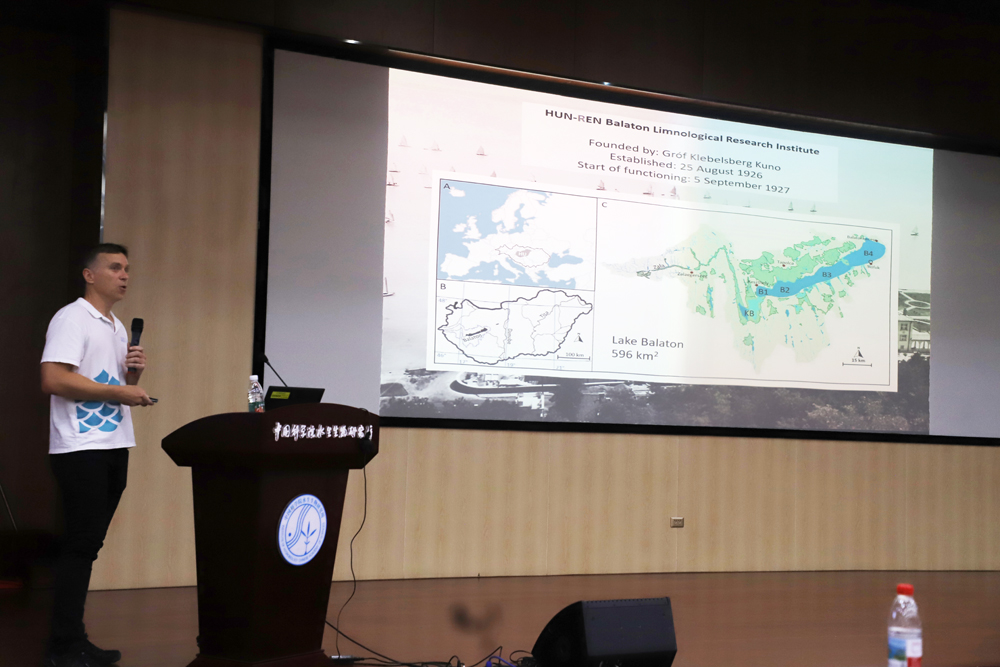
Newsroom
Professor Tibor Erős from Balaton Limnological Research Institute Visits IHB

rofessor Tibor Erős from the Balaton Limnological Research Institute of Hungary visited IHB on June 11, 2025. (Credit: IHB)
Professor Tibor Erős from the Balaton Limnological Research Institute of Hungary visited the Institute of Hydrobiology (IHB) of the Chinese Academy of Sciences (CAS) for an academic exchange on June 11, 2025. He delivered a lecture entitled "Saving freshwater biodiversity: Sustainable water management and land use design in the Anthropocene."
During his lecture, Professor Erős introduced a novel framework for designing global ecological protection zones. He proposed a three-tiered hierarchical system for freshwater ecosystems, classifying areas into core protection sites, extended protection zones, and broad protection regions. Using four major natural stream watersheds in Hungary as case studies, he demonstrated how to build an effective protection hierarchy by identifying key ecological nodes and optimizing connectivity. This methodology provides a scientific tool for enhancing overall ecosystem function and connectivity.
Furthermore, Professor Erős emphasized that the planning of freshwater protected areas must balance ecological functions with human service needs. He pointed out that scientifically assessing a region's biodiversity, its capacity to maintain biological integrity, and its ecosystem services—such as provisioning, regulating, and cultural services—is crucial for developing tailored conservation strategies. Case studies from the Danube River floodplain and Lake Balaton watershed vividly illustrated how this balance can be achieved.
Concluding the lecture, Professor Erős called for enhanced legal and institutional safeguards from the perspective of European policy and international cooperation to promote transregional and transboundary freshwater ecological protection. He stressed that only through global collaboration and science-led approaches can we address the increasingly severe freshwater ecological crisis and achieve the shared goal of sustainable development.